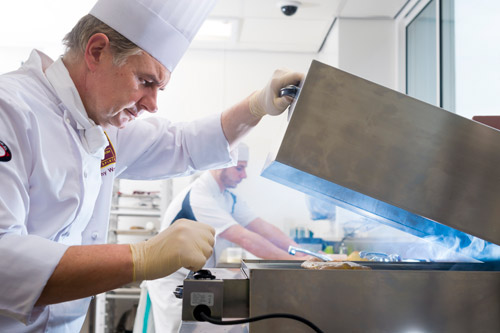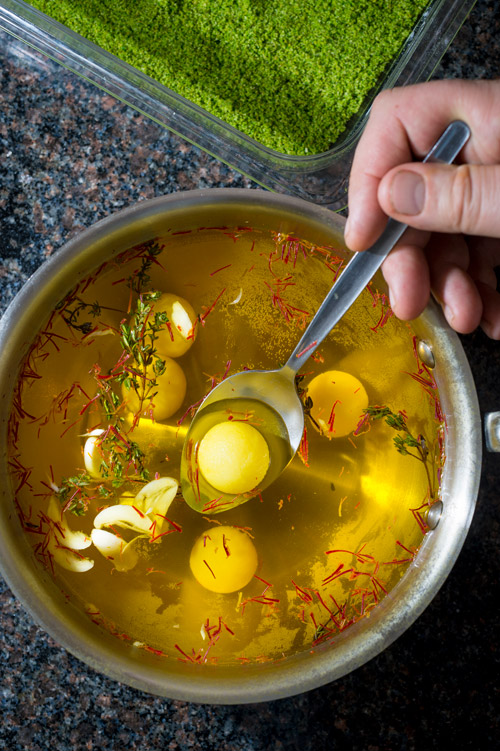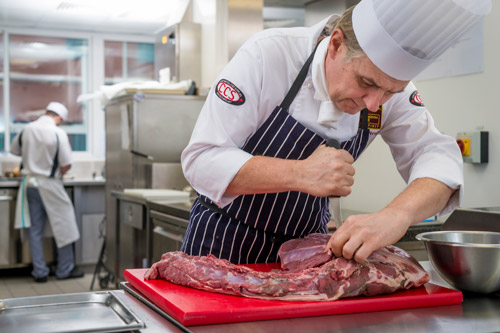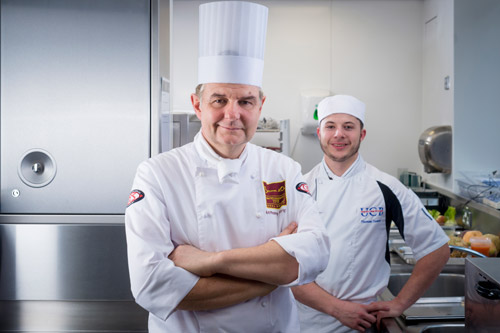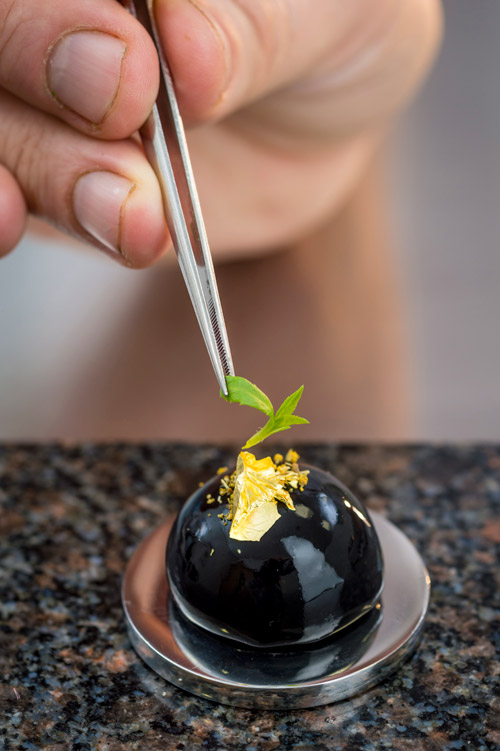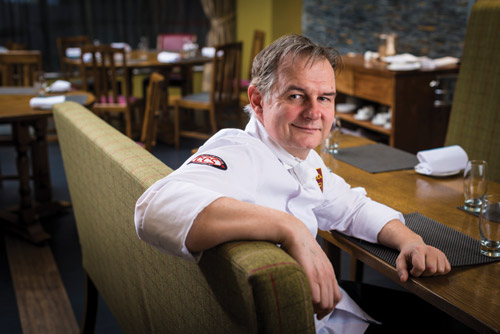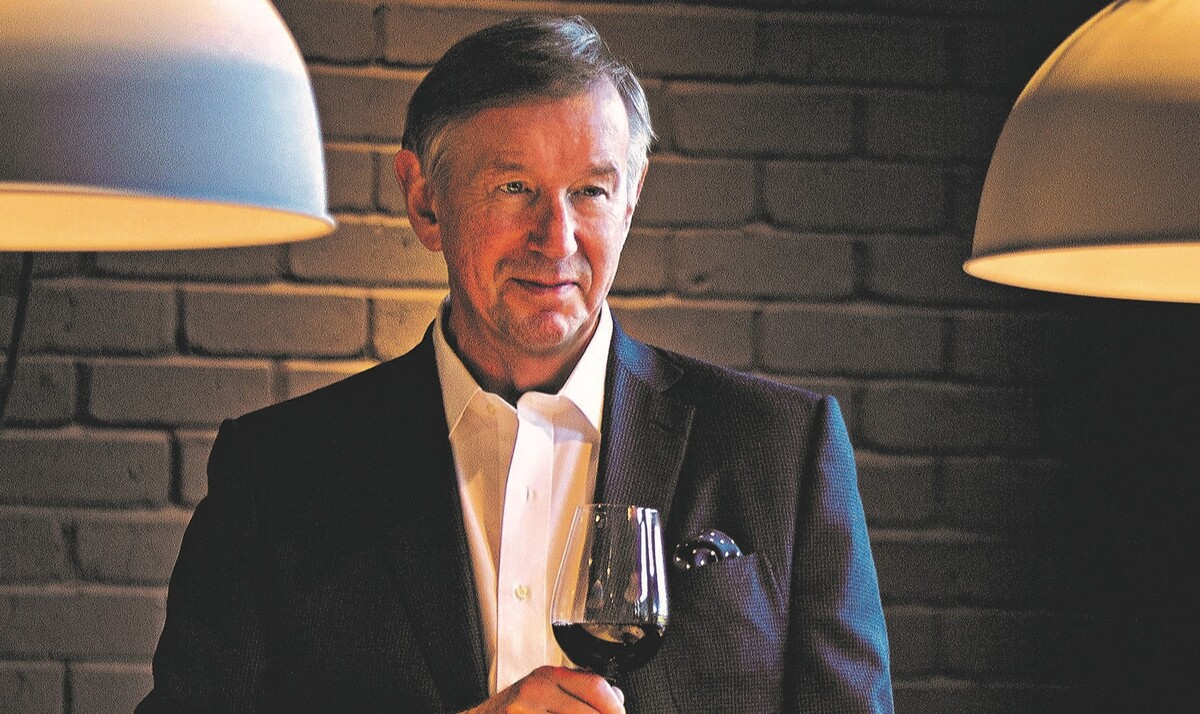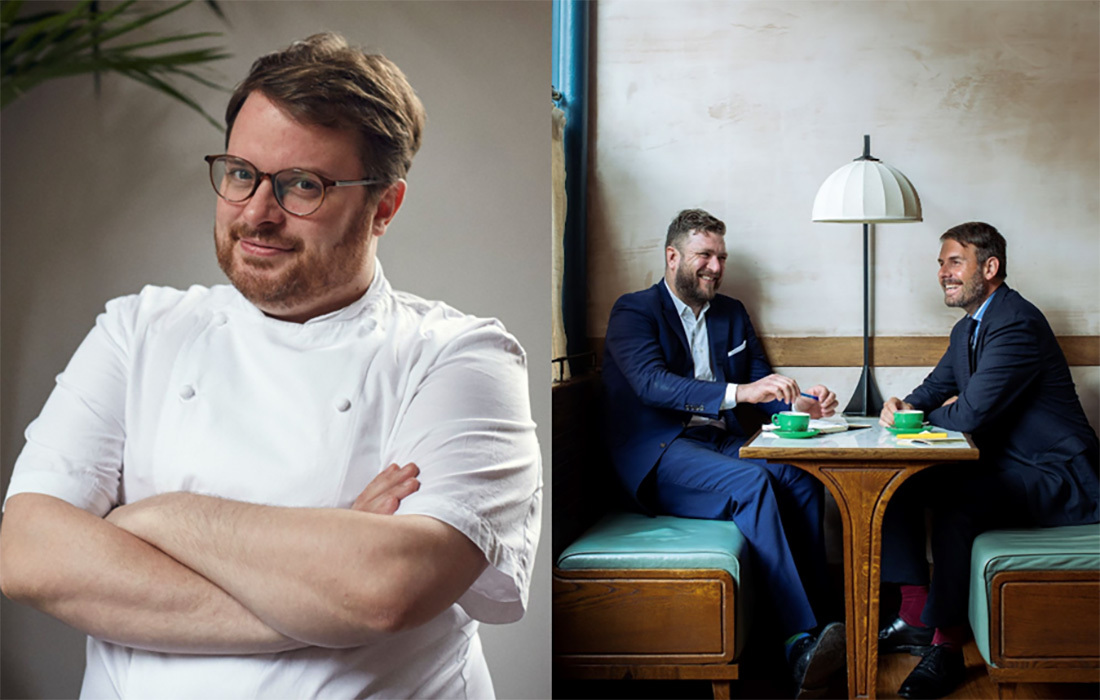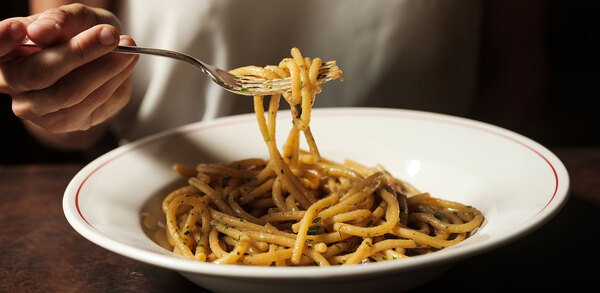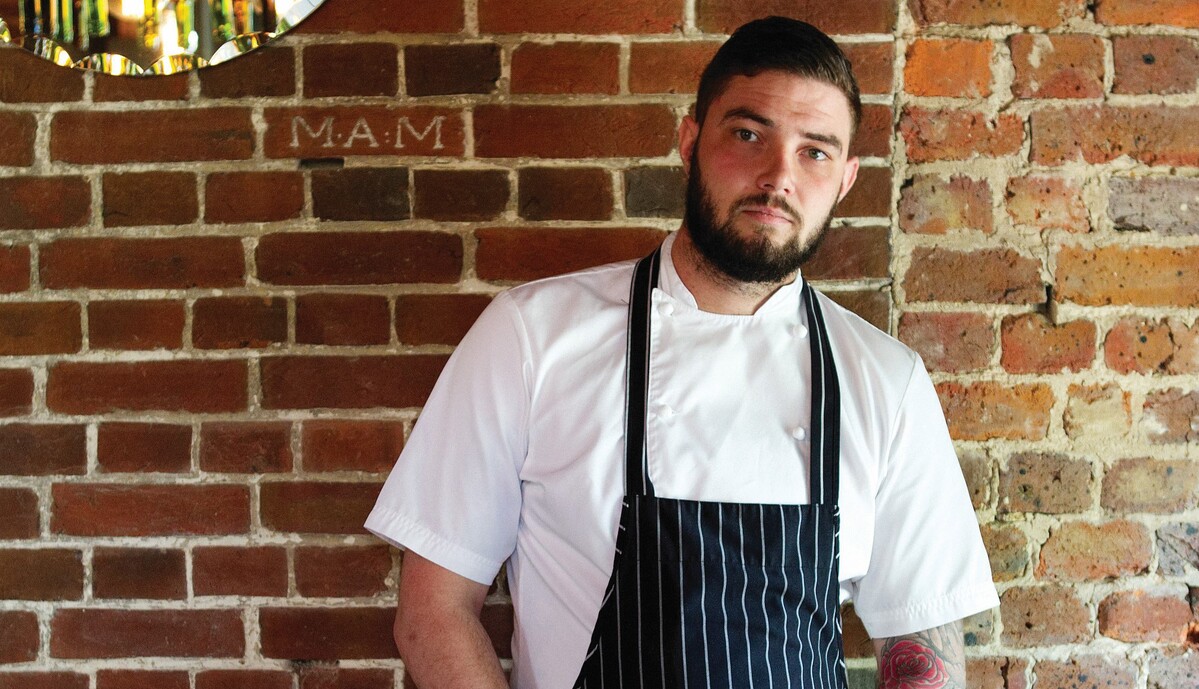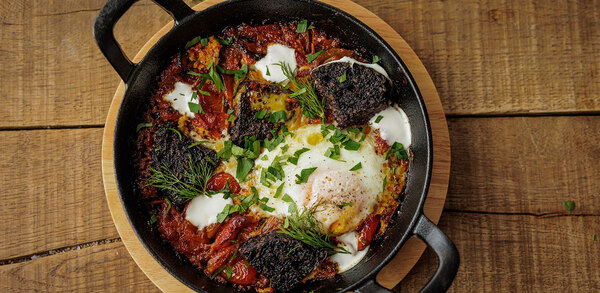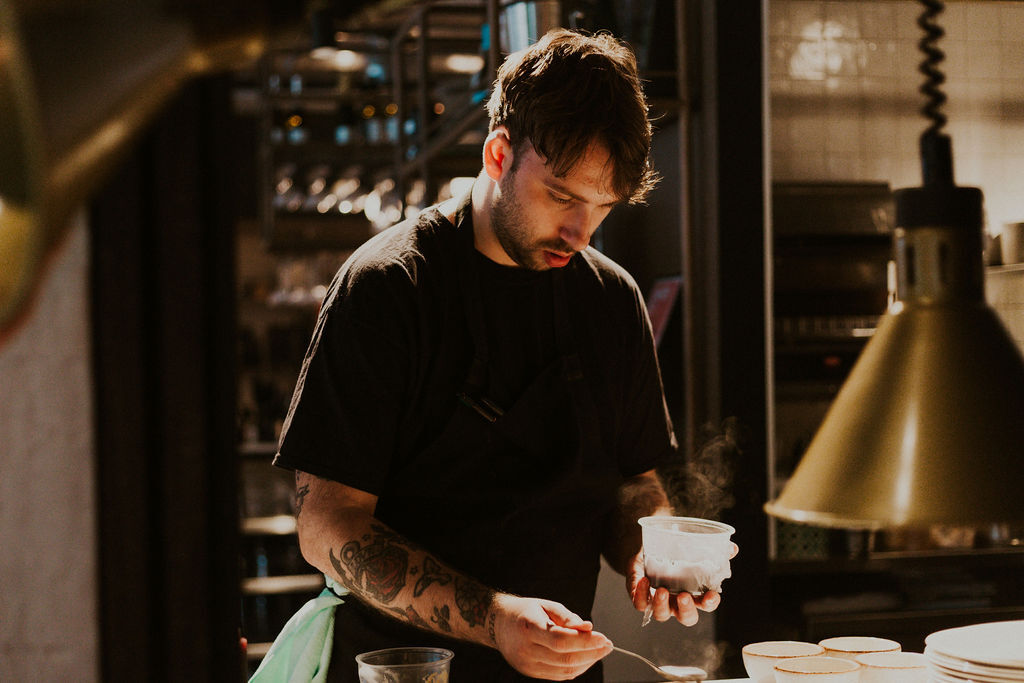The Caterer interview: Anthony Wright, Team UK's Bocuse d'Or candidate
The Team UK Bocuse d'Or cookery competition candidate will compete in the European heats in Budapest next month in the hope of securing a place at the world finals in Lyon in 2017. He tells Neil Gerrard what competing means to him
How does it feel to be Team UK's candidate for the Bocuse d'Or?
It is a real privilege to represent your country. I feel like I am not only representing my country but University College Birmingham (UCB) and the students as well. It is a mixture of excitement and some apprehension because of the enormity of the task ahead, but it is just a wonderful opportunity and one that doesn't come along very often. I am delighted to have this chance.
You looked very calm during the national selection. Are you used to cooking in a competitive environment?
How do you balance your day job with the competition? How much preparation have you done so far?
The college has been marvellous and they have been incredibly supportive. All of my time and attention is focused on the Bocuse dâOr and they have taken my day-to-day responsibilities off me for the duration of the competition. I am training in UCBâs Bocuse dâOr kitchen, which is an identical facility based on a replica of how the kitchen will be in Budapest in Hungary, and then in Lyon. At the moment [at the end of March] I would say we are coming to the end of the development stage, so we havenât started full run-throughs yet. The brief for Hungary is to cook a fish dish of sterlet and a meat dish of red Hungarian deer. So to begin with we have cooked the sterlet through various different cooking methods to try and bring out the best flavour and texture. And we think we are well on the way now. I would say that the fish dish is probably 85%-90% finalised and I would say that the meat dish is probably 95% finalised.
How difficult has it been to source the ingredients you need to work with?
It has been quite difficult getting the actual products themselves. The fish I have been getting arenât sterlet, but they are sturgeon, which is very similar. The fish I have been receiving to practice with have been coming in at around 4kg, and on the day the fish are going to be just under one kilo, so that is a phenomenal difference. We have managed to get the actual fish recently, but only once.
Why has it been so hard to get hold of?
First of all, it is a fish that we donât use a lot in this country. I have never cooked sturgeon before, and nor have most of my colleagues. I guess there is not a great demand, so the availability is a problem. What we have been getting is farmed and from France.
Do you like sterlet as an ingredient to work with?
It certainly wouldnât be my first choice. It tends to have an earthy flavour â" it is a bottom feeder and if you are not careful it can have an almost muddy flavour. As the fish gets larger, you get these yellow fat deposits in it which arenât very attractive. Also, where you remove the skin from the fillet there is a brown flesh and it is not very appetising to look at. It is a very resilient fish and looks almost prehistoric in my opinion, with thick, leather-like skin. It is a tough fish and quite tough to cook as well.
How has the red deer from Hungary been?
The red deer hasnât been such a problem. Our supplier, Aubrey Allen, has been very supportive of us. We believe we can get the identical product without having to go to Hungary.
How much produce would you say you get through while preparing for the competition?
It is quite difficult to say. What I can say is that when we start practicing a full run-through, then we will be getting through one quite large haunch and loin of venison each practice, as well as five sterlets. So if we were to practice three times a week, we would use three haunches and 15 sterlets. After Easter we are going to practice solidly. I have got Brian Turner and John Williams coming down to have a look at the dishes and what stage they are at currently and I obviously value their opinion. The coach, Nick Vadis, is also going to come down.
Tell us about your new commis chef.
It was Jack Gameson, but it is now Thomas Downes. Jack has been unable to continue for reasons beyond his control, but it was nothing to do with the pressure of the Bocuse. When Andreas Antona, myself and another lecturer selected the commis, we held a cook-off between a couple of the students. On the day we felt Jack was the best candidate, but Thomas also showed real potential and it was very close. It was a hard one to call. We felt that we needed a back-up as well, so Thomas came on the journey, ready to stand in if necessary. The opportunity has come along now and Thomas grabbed it and is doing a marvellous job. You do have to get on well with each other. It is so important that you have an understanding and that you can work well with each other under pressure.
How much do you find yourself thinking about the competition?
You never put it down. It is not just physically working in the kitchen â" you leave the kitchen and it is always on your mind. You go home and you are lying awake at night and thinking of a new way of achieving something, a new garnish or small refinements to keep improving.
Sometimes you hit a bit of a wall â" I have had that as well. A lot of that may be because you have been in the same kitchen for quite a few hours and sometimes you need to get out and go somewhere different. That happened to me and I spoke to John Williams from the Ritz. He gave me a call and asked me how I was getting on and asked if I would like to come to the kitchens at the Ritz. I spent three or four days there and that was just what I needed.
Have you found a way for the students to benefit from this whole process as well?
Yes â" this morning, for example, a young student came into college four hours before his lessons and offered to help â" weighing, measuring, anything like that. His name is Alex. It is important that they get something out of it and learn something new, so we will show him how to finish off a garnish. There are only so many students we can get in here because of the size of the kitchen. What has been wonderful for me is that I have learned so much in such a short space of time as well.
The coach is Nick Vadis â" how much have you been working with him so far?
I met Nick recently at Hotelympia in London so we touched base there. What is really good now in this age of technology is that you can communicate well, so I have been taking pictures of my food as each garnish has developed. We have been sending those to John, Brian, Nick and Andreas so they are up to speed where we are. You have to filter the feedback to find the right thing to do. Ultimately, we are on our own when the big day comes, but I really value the knowledge and experience of the team and â" I mean this â" it has a family feel to it. It is great to have that calibre of people behind you.
What excites you the most about the competition and what is your biggest worry?
When you enter, if you are fortunate enough to get through, you are against some of the best chefs in the world and the atmosphere can overwhelm you. There are so many people, it is so loud, and there are thousands of supporters and hundreds of press. So that whole
environment excites me.
I love the fact that it has given me the opportunity to use my classical training. I think that is really important and I am very passionate that chefs should have good classical French training. The garnishes that I do, even though they are quite modern and innovative in some ways, are thoroughly grounded in classical techniques. What daunts me? I suppose you need everything to go right on the day as well. You need the judges to agree.
What are you aiming for as far as a result is concerned for the European selection?
I am hoping to go all the way, because if that is not your attitude, you shouldnât really be doing it. I would hate to come across as arrogant but I think we should always try and improve. Adam Bennett really set the benchmark when he came fourth [in 2013] and he has also been a great support. Recently I have been driving over to the Cross at Kenilworth [where Bennett is head chef] on Saturday mornings just to sit down with Adam for maybe an hour to ask him questions about the competition and he gives me some feedback, which is fantastic. I really have the utmost respect for Adam and what he did and now we have to try and move forward and build on it.
Anthony Wrightâs career
Anthony Wright is a former winner of The Catererâs Acorn Awards and enjoyed a distinguished career in fine-dining before he went into lecturing at University College Birmingham (UCB).
His career began at the Plough and Harrow Hotel in Birmingham in 1981 until he moved on to Sloanâs from 1983 until 1984 and the Metropole hotelâs Garden restaurant from 1984 to 1985. It was after this that he started his long working relationship with Nico Ladenis, beginning at his restaurant in Battersea before moving to work for the chef and restaurateur at Shinfield near Reading in Berkshire.
A stint at La Tante Claire under Pierre Koffmann followed, before Wright took a role at Mallory Court hotel in Royal Leamington Spa, Warwickshire, from 1987 until around 1988, and where he held a Michelin star. He then returned to work for Ladenis as his pastry chef in Great Portland Street until eventually moving to work at 90 Park Lane.
Speaking of working for Ladenis, who won the Lifetime Achievement Award at the 2015 Cateys, Wright says: âI absolutely loved working for Ladenis. I loved his food, the flavours and his philosophy. It just clicked. I have the greatest respect for him and I still keep in touch. He is a very kind man too â" he has great integrity and is a gentleman.â
Wright continued to work for Ladenis until 1993/94. He then returned to Birmingham and opened his own relaxed restaurant called Le Rendez-Vous. He was drawn to teaching at UCB about five years later. He is now a senior chef-lecturer and runs the Atrium restaurant at the university.
The competitors
A total of 20 chefs from across Europe will compete at the European selection at the Sirha Budapest trade show on 10 and 11 May. This yearâs brief is to prepare a fish plate using sterlet with its caviar, and a meat platter of young red Hungarian deer.
- Austria Kevin Micheli, Einstein St Gallen Hotel Congress Spa
- Germany Marvin Böhm, Restaurant Aqua, Wolfsburg
- Belgium Peter Aesaert, Belgocatering
- Bulgaria Antonio Ivanov, Restaurant Pure
- Croatia Tomislav Karamarko, FMTG Group Borik d.d., Falkensteiner
- Denmark Morten Falk, Kadeau
- Spain Juan Manuel Salgado, Restaurant La Plassohla
- Estonia Dmitri Rooz, Restaurant Farm
- Finland Eero Vottonen, Restaurant Olo
- France Laurent Lemal, Domaine Riberach â" Restaurant La Coopérative
- Hungary Tamas Szell, Onyx
- Iceland Viktor Ãrn Andrésson, Grillid/Radisson SAS
- Italy Marco Acquaroli, Four Seasons Hotel des Bergues
- Norway Christopher William Davidsen, Søstrene Karlsen
- Netherlands Jan Smink, Librije
- United Kingdom Anthony Wright, University College Birmingham
- Russia Arthur Ovchinnikov, Restaurant Enzo
- Sweden Alexander Sjögren, freelance
- Switzerland Filipe Fonseca Pinheiro, Restaurant Hôtel de Ville Crissier
- Turkey Mutlu Sevket Yilmaz, Seasons Restaurant
UK unveils bid to host 2018 Bocuse d'Or European heats >>Bocuse d'Or UK reveals team for Budapest European selection >>
The Caterer interview: Mark Chambers, managing director, Eden Hotel Collection >>
Latest video from The Caterer


